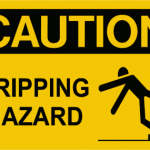I sat in a room filled with private school teachers meeting to talk about character education. Some talked about giving badges and rewards for students that are caught showing great character. Others described the need for teachers to model great characters and engage students in conversations about their actions.
I left the conversation overwhelmed by the questions. These teachers asked great questions and offered perspectives that I hadn't even considered. Aside from the occasional programs and posters, I don't often hear conversations about developing character in the context of the public school system. Most of our conversations involve raising test scores.
My first thought is that I'm not sure character can be taught so much as developed. I don't have the answers on how we develop it, either. I know that some kids respond well to praise, but that extrinsic rewards can get in the way of ethical thinking. I know that sometimes the natural consequences build up character, but sometimes it also teaches kids to lie and to hide. I know that struggling with a subject can build up resistence, perserverance and character. However, I also know that some kids give up way too quickly.
My second thought is that I've grown the most as a person in the spaces where I had the biggest permission for failure. I'm not sure what this means for schools, but I'm thinking that the policies we have typically don't allow for kids to be vulnerable. Our grading systems often punish kids for having the wrong answer. Our Zero Tolerance policies often tell kids that it's all about punishments and not about being restored. Our lists of rules often place compliance and rule-following about learning how to think ethically.
My final thought is that maybe what kids need the most is an honest, open recognition that we're all flawed. This includes every child and every adult on campus. The human condition is often the lingering, unspoken reality that gets in the way of our best crafted character education programs.









Comments 2
How can we teach character and how can we develop it? Two great questions that are fundamental to a free society. Permission to fail is a great insight. My own kid was preparing for a test he cared about – a karate test – one particular part was extremely difficult for him. I told him early in the process that he had my permission to fail. He practiced relentlessly and there were even tears when he couldn’t get the board breaks. Going into the test, not one time had he done his breaks successfully. During the test, he owned the boards and smashed them to smithereens. I don’t know if this is relevant to your piece, but thanks for reminding me of one of best family moments.
John — I completely agree with you that students need to understand that as teachers we are “flawed”. I consistently tell my students that there are times when I make mistakes just like them. I also explain why this is an excellent time to listen to these stories — saving them from the same fate.